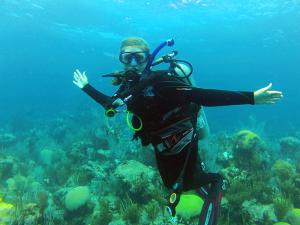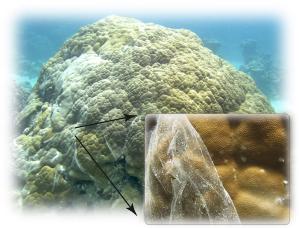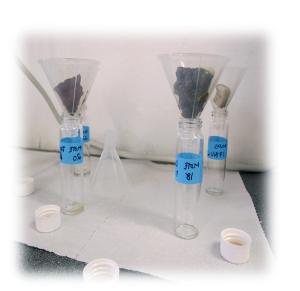Understanding environmental change through coral mucus
We typically think of corals as marine anthozoans that secrete a hard skeleton of calcium carbonate, but corals also support a community of microbial epibionts that facilitate carbon and nutrient cycling in reef ecosystems. When corals are stressed, they often secrete large quantities of mucus. This mucus micro-layer supports an active community of microbes that may in turn affect the health of corals through interactions with other beneficial or pathogenic bacteria. The microbial communities that inhabit mucus may play a key role in coral health, but these communities are largely uncharacterized, and the impact of mucus composition in defining this community is also unknown. How do the bacteria in coral mucus work to help or hurt corals? Do bacterial communities change over time? Does the same species of corals support the same community of microbes? Are mucus composition and microbial community composition related? Why do corals secrete mucus when stressed? To address these questions, we are working with Dr. Amy Apprill, an expert in coral microbial ecology, and guest student Laura Weber to characterize mucus composition and explore the effect of mucus on bacterial diversity and function in coral reef ecosystems. Since so little is known about coral mucus, much of our work is discovery-based, we are continually working to


